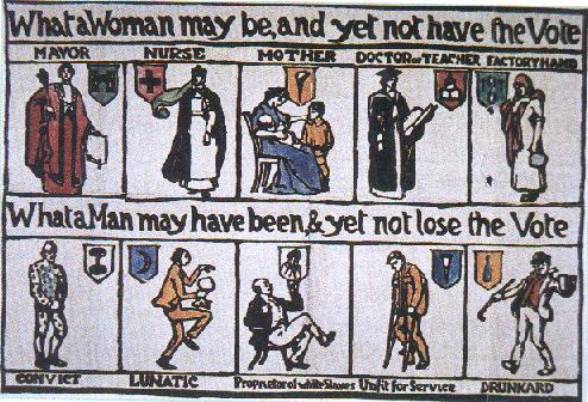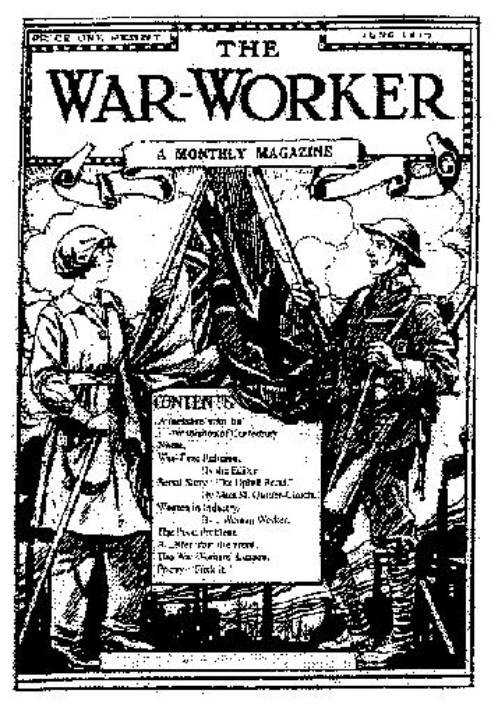|
Source a: The importance of the vote.
It is important that women should have the vote so that, in
the government of the country, the woman’s point of view can be put
forward. Very little has been done for women by legislation for many
years.
You cannot read a newspaper or go to a
conference without hearing details for social reform. You hear about
legislation to decide what kind of homes people are to live in. That
surely is a question for women.
No woman who joins this campaign need give up a
single duty she has in the home. It is just the opposite, for a woman
will learn to give a larger meaning to her traditional duties.
From a speech
made by Mrs Emmeline Pankhurst in March 1908.
Source b: An argument in favour of votes for women

Source c: An argument against votes for women.
Women do not have the experience to be able to vote. But
there are other problems as well: the way women have been educated, their
lack of strength, and the duties they have.
If women did gain the vote, it would mean that
most voters would then be women. What would be the effect of this on the
government? I agree that there are some issues upon which the votes of
women might be helpful. But these cases do not cover the whole of
political life.
What is the good of talking about the equality
of the sexes? The first whiz of the bullet, the first boom of the cannon
and where is the equality of the sexes then?
From a speech
made in 1912 by Lord Curzon, a Conservative leader.
Source d: Men and women united in a common cause

The cover of
the War Worker magazine, June 1917
Source e: Male attitudes to women workers during the First World War
Attitudes to women workers remained, in many cases,
negative. The ability of women to take on what had been men’s work meant
that increasing numbers of males were vulnerable to conscription.
Some women doing skilled work had the full
co-operation of male employees. Many other women were restricted to less
skilled work and were victims of hostility and even of sabotage.
From War and
Society in Britain 1899–1948, by Rex Pope, an historian, 1991.
|